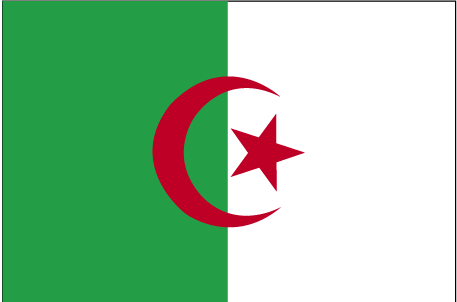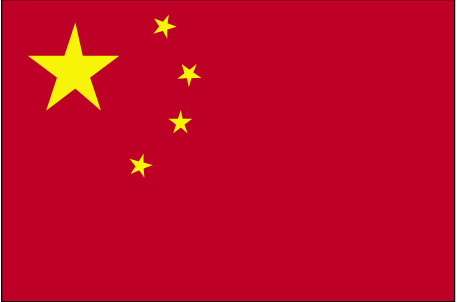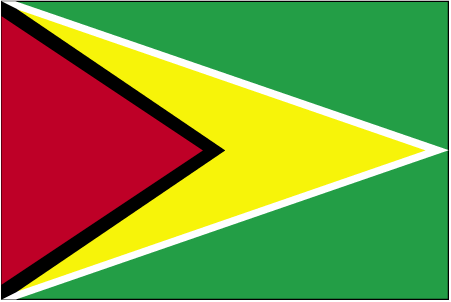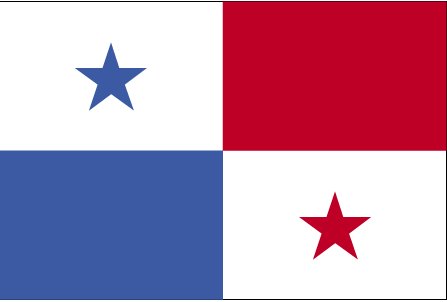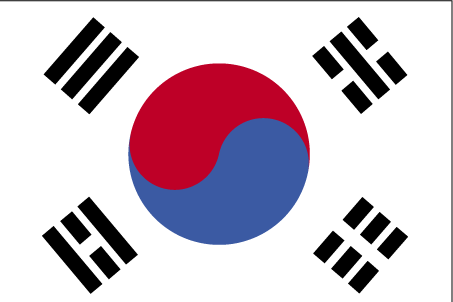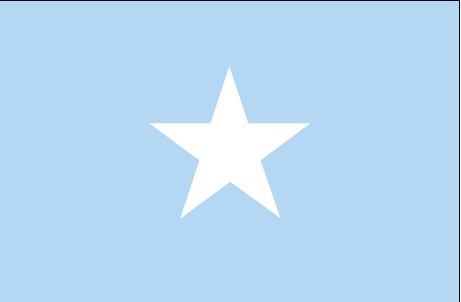FORUM: The Security Council
THE QUESTION OF: Haiti
SUBMITTED BY: United States of America
CO-SUBMITTED BY: Pakistan, Slovenia, UK, Russia, Panama, Algeria, China, Denmark, France, Greece, Somalia, Guyana, Republic of Korea, Somalia
THE GENERAL ASSEMBLY,
1. Requests the creation of a Haitian Peacekeeping and Security Initiative (HPSI) to expand on the efforts of the Multinational Security Support Mission in Haiti (MSSH) to intervene in Haiti, overseen by the United Nations Integrated Office in Haiti (BINUH) to establish a prosperous and safe state by means including:
a. following a mandate entailing the following:
protect civilians from gang violence
i. restore order through the Disarming, Demobilising and Reintegration (DDR) process to support armed forces and groups to lay down weapons and return to civilian life
ii. secure key infrastructure such as ports and harbours, airports, government buildings, healthcare facilities, energy and telecommunication infrastructure, and security and police stations
b. Supporting the Haitian National Police (HNP) and the Haitian Armed Forces (FAd’H) through:
i. re-training and review of their force personnel
ii. contributing to funding and provision of resources, including weapons and armour
c. investigating and documenting crimes committed against humanity, including murder, rape, torture of civilians and corruption within the government officials, civil servants and all police officers to ensure all found guilty of illegal activities are prosecuted and removed from positions of power and:
i. referring individuals to the International Criminal Court (ICC)
ii. referring organisations to the International Court of Justice (ICJ)
iii. further referral to the UNSC and appropriate UNSC sanction bodies to apply sanctions where necessary
d. the protection of established humanitarian corridors, working with the Office of Coordination of Humanitarian Affairs through:
i. demilitarised buffer zones
ii. remote sensing and drone surveillance technology
iii. checkpoints
iv. real-time reporting and communication mechanism for incidents
v. diversion tactics
e. enhancing intelligence sharing networks to combat both interior criminal activities and activities outside Haiti that have an influence on the operation of criminal activities; Main submitter Pakistan
2. Decides accordingly for a number of initiatives to begin in Haiti modelled off the United Nations Transitional Authority in Cambodia (UNTAC) immediately upon the passing of this resolution by the Security Council, the approval of this resolution by the Haitian government, a majority in favour in a Haitian plebiscite, to create a United Nations Transitional Authority in Haiti (UNTAH) to work with all relevant UN bodies operating in Haiti, the United Nations Integrated Office in Haiti (BINUH), and stakeholders, and to replace and rework the duties of the Haitian government through the effective rollout of the following tasks upon approval:
a. the immediate creation of a committee of experts in the fields of economics, state-building, diplomacy, and more to study and create a comprehensive report on Haiti's current political position, analyse UNTAC’s failures
b. holding a tri-annual conference to occur within six months of this resolution passing to be attended by the entire committee of experts, representatives of the Haitian government, UNTAH, and representatives of contributing Member Nations, to update UNTAH’s approach to recent developments
c. working with all willing Member States to develop approaches to their contributions to UNTAH through UN reps and Haitian ambassadors and Member States’ governments on the contribution of military and police, increased levels of state funding, Foreign Direct Investment (FDI) and more UNTAH
d. ensuring the rollout of all future policy and legislation will respect the constitution of Haiti, the rights of the people under national and international law, the conditions of contributing Member States and concerns raised by the committee of experts in sub-clause a through the means of:
i. draft legislation on political settlement of the Haiti issue, including annexes on the mandate of UNTAH, military matters, and elections
ii. agreements concerning the sovereignty and independence of Haiti
iii. a separate declaration on the reconstruction, rehabilitation, and restabilising of Haiti; Main submitter Russia, co-submitter Denmark
3. Decides to expand the efforts in Haiti under the United Nations Integrated Office in Haiti (BINUH) to reflect the severity of the decade-ongoing crisis in the state in conjunction with any other relevant UN bodies, neutral stakeholders in Haiti, and more to fulfil an expanded group of tasks including but not limited to:
a. founding the Haitian Anti-Corruption Committee (HACC) with the Department of Political and Peacebuilding Affairs (DPPA) to combat the problem of corruption in the political, judicial, and law enforcement system through a variety of means, including:
i. creating in-depth and relevant vetting mechanisms for anyone applying to work in the civil service, run for political office, enter the judiciary, or sit on a jury
ii. conducting reports and research on effective methods for vetting, ensuring, and tackling anti-corruption in all relevant systems to influence future approaches and research, such as but not limited to the idea of raising the salaries of politicians, law enforcement, and members of the judiciary
iii. designating high-risk gangs, corporations, and individuals for corruption, creating an official watch list and encouraging INTERPOL to open investigations into such parties
iv. designating appropriate response mechanisms for the tackling of corruption when it is identified in Haitian systems through any methods needed
v. developing advice for the Haitian government on the creation of legislation to limit gifts from third parties and to restrict extensive lobbying and income streams from corporations and criminal gangs
b. making frameworks for the holding of free and fair elections through the creation of a Haitian Electoral Commission (HEC) under the Department of Political and Peacebuilding Affairs (DPPA), BINUH, UNTAH, other UN-designated efforts created in this resolution to do the following duties:
i. publish adjustable guidelines for the running of elections in Haiti by working with any relevant
ii. oversee all areas of the first Haitian election to make sure that the election follows the guidelines
iii. running any relevant referenda or plebiscites brought about by the passing of this resolution
iv. ensuring that gangs and organised crime groups are disallowed from association with the electoral process under Haitian law in any capacity
v. make a report on the elections made public after the conclusion of the electoral cycle that recommends updates to the electoral guidelines to make them fairer; Main submitter Republic of Korea, co-submitter France
4. Urges for the creation of UNTAH withdrawal mechanisms which will be directly overseen by the UN Security Council and BINUH to ensure the safe transfer of power in a post Transitional Authority Haiti by:
a. creating goals for UNTAH so that the removal and transition of power can be appropriately planned in advance so that stability in Haiti can be ensured, such goals and conditions of removal being as follows:
i. fair and free presidential and parliamentary elections have been held in Haiti, with the victorious party or figure being safely installed into power
ii. all gang violence ceases to exist in the Haitian state at levels of extreme or moderate disruption
iii. the humanitarian crisis has been largely resolved with less third-party support required
iv. a long-term economic plan has been successfully instituted and agreed upon by the Haitian government
b. smoothly withdrawing UNTAH from Haiti when deemed necessary and approving that a limited UN presence will continue to exist in Haiti for a time agreed upon by the UNSC, UN operations including:
i. a UN peacekeeping contingent made up of lightly armed forces to patrol areas that continue to be high-risk areas, assist in emergency response, and prevent the resurgence of gang violence
ii. UN police advisory unit tasked with training and mentoring Haiti’s police forces, improving law enforcement capabilities, and upholding human rights and anti-corruption measures
iii. a Political and Governance Advisory Team composed of UN representatives, legal experts, and mediators to provide guidance on democratic governance and institutional stability
iv. a Humanitarian and Development Task Force as outlined in other clauses of this resolution
v. the operations of the HEC in collaboration with the Haitian government
vi. normal UN programmes from bodies operating in Haiti disconnected to UNTAH
vii. the continuation of the tasks of BINUH with any mandates made by the UNSC. Main submitter Russia, co-submitter USA
5. Calls for the creation of a United Nations Humanitarian Aid Initiative in Haiti (UNHAIH) to be overseen by the United Nations Security Council, governed by a non-partisan, Haitian-led commission working in close cooperation and coordination with all bodies, global experts and NGOs deemed relevant by the United Nations Security Council, to be comprised of representatives from all affected communities, particularly minorities as well as all major and non-criminal parties and organisations active in Haiti as well as expert United Nations representatives to act as advisors should they be requested by the other members, to ensure a wide-reaching and fully comprehensive humanitarian aid programme in Haiti with aims including but not limited to:
a. appealing to all willing and able nations to make reasonable efforts to provide financial aid to Haiti where possible or to provide increased aid if already doing so and to provide increased financial support to UN-recognised humanitarian aid organisations active in Haiti to improve access to essential services and resources such as food, water, healthcare, and sanitation facilities
b. using UN funding to deploy ground missions within Haiti within established humanitarian corridors, providing services to all communities affected by the humanitarian crisis but particularly those in more vulnerable positions such as the homeless, pregnant women, children and those suffering from illnesses and disabilities, including but not limited to:
i. non-perishable, nutrient-rich foods in the form of balanced food parcels
ii. clean drinking water
iii. healthcare facilities provided by mobile clinics and in line with global healthcare standards
iv. adequate sanitation facilities
c. working with the FAO to facilitate the provision of agricultural materials such as seeds and fertilisers to Haiti, ensuring that they are protectively packaged and stored in optimal conditions in order to guarantee their usability upon reaching Haiti
d. urging member nations to allow debt delay and debt relief to Haiti, if possible in order to allow for financial recovery
e. promoting food security and agricultural development in Haiti through:
i. a mass media campaign conducted through an array of digital and physical media, including biodegradable flyers, with the contents of such a campaign being focused on agricultural advice, best practices and sustainable farming practices
ii. the provision of financial encouragement through methods such as subsidy schemes and grants to be financed by UNHAIH and provided directly to farmers in order to incentivise farming; Main submitter Greece
6. Authorises the implementation of a program called the “Youth Engagement Programme of Haiti” (YEPH), which aims to decrease the admission of criminal organisations by improving access to education and increasing skills development for young people in Haiti by addressing the necessities the students lack, encouraging their engagement in local communities by:
a. creating an educational program designed to equip youth whose age group is determined by experts from the UN with practical job skills, allowing them to first improve themselves in industries that they are skilled and interested in, thus enabling the youth to work more efficiently when they legally start working by:
i. accepting volunteers chosen after some selection process, which will be determined through consultation among educational experts regarding the necessary competencies
ii. establishing an investigatory group formed by UN members to determine Haiti’s areas that have been rid of gang violence
b. gathering a commission from local and volunteer education specialists from the United Nations Children’s Fund (UNICEF) and UN together to address deficiencies of the program, share ideas and tailor solutions to reduce gaps to access to the education provided by the program by conducting meetings every 6 months to achieve long term success in improving the education as well as giving feedback by volunteer education specialists to local teachers after the meeting, considering the student engagement, teacher effectiveness and alignment with global educational standards
c. facilitating communication between local youth and local businesses, offering young people the opportunity to experience hands-on practice in different industries, then progress further if they are interested after they finish the educational program by establishing partnerships with local businesses as well as encouraging local businesses to hire program graduates to increase job opportunities; Main submitter Algeria

